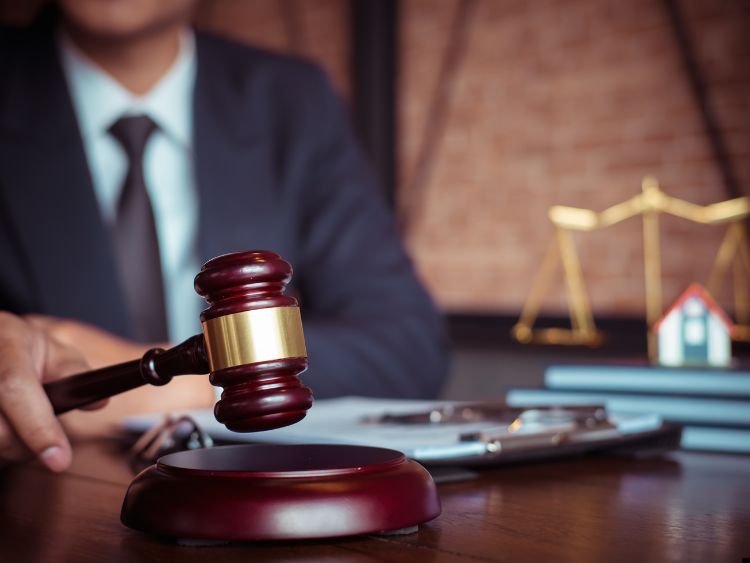What Is a Product Liability Lawyer?
When we buy products—whether it’s a new car, a kitchen appliance, or even a child’s toy—we expect them to be safe to use. However, sometimes things go wrong, and a product ends up causing harm due to defects or dangerous design. That’s where a product liability lawyer steps in. These specialized attorneys are your advocate when dealing with injuries or damages caused by faulty products. But how exactly do they work, and when should you consider hiring one?
In this article, we’ll dive deep into what product liability lawyers do, the different types of product liability claims, and the essential steps to take if you find yourself in need of legal help for a product-related injury.
What Does a Product Liability Lawyer Do?
A product liability lawyer represents individuals or groups who’ve been injured or harmed due to defective or unsafe products. These lawyers work on cases where a manufacturer, distributor, or retailer may be held responsible for releasing a harmful product into the market.
Their job often includes:
- Investigating the defect or issue with the product
- Gathering evidence of the defect and how it caused harm
- Consulting with experts to strengthen the case
- Representing clients in court or negotiating settlements
The primary goal is to prove that the product was unsafe and that the defendant (usually the manufacturer or seller) is legally responsible for the injuries.
Types of Product Liability Claims
There are three main categories in product liability law, each targeting different kinds of defects. Understanding these categories can help determine whether you have a valid claim:
- Design Defects
Design defects are present in a product before it’s even made. The design itself is inherently unsafe, making every unit produced potentially harmful. For example, a car model with a top-heavy design may be more prone to rollover accidents, making it unsafe for consumers. - Manufacturing Defects
A manufacturing defect occurs during the construction or assembly process. This type of defect typically affects only certain batches or units of the product. Imagine a batch of smartphones with batteries that tend to overheat and explode; this issue would fall under manufacturing defects. - Marketing Defects (Failure to Warn)
Marketing defects, or “failure to warn,” refer to cases where a product lacks sufficient instructions or warnings for safe use. For instance, if a medication fails to list potential side effects or interactions with other drugs, this could lead to harm for users who are unaware of the risks.
Why Should You Hire a Product Liability Lawyer?
Hiring a product liability lawyer can make a significant difference in the outcome of your case. Here are a few reasons why it’s wise to consult a lawyer if you’ve been injured by a faulty product:
- Navigating Complex Laws
Product liability law can be tricky, often involving state and federal regulations. A skilled lawyer understands these laws and can determine the best approach for your case. - Gathering and Presenting Evidence
Proving a product liability claim requires substantial evidence. Lawyers know how to obtain and present evidence, from medical records to expert testimonies. - Maximizing Compensation
Injuries from defective products can lead to significant medical bills, lost wages, and even long-term disabilities. A lawyer will work to secure the compensation you need to cover these expenses. - Handling Negotiations
Most companies have legal teams ready to defend against claims. Product liability lawyers are experienced in negotiating with big corporations and can fight for a fair settlement.
Steps to Take If You’re Injured by a Defective Product
If you suspect that a product has caused you harm, taking the right steps can help strengthen your case:
- Seek Immediate Medical Attention
Your health is the top priority. Be sure to get medical help right away, even if the injury seems minor. This also establishes a record of your injury, which can serve as crucial evidence. - Preserve the Product
Keep the defective product and any packaging, instructions, or receipts. Avoid altering or tampering with it, as this may be critical evidence. - Document Everything
Take pictures of the product, your injuries, and the accident scene if applicable. Write down details of what happened while it’s fresh in your mind. - Contact a Product Liability Lawyer
Consult a lawyer as soon as possible to assess your case and start the process of gathering evidence and building your claim. - Avoid Speaking to Insurance Companies Without Legal Advice
Insurance companies may try to settle quickly and for less than you deserve. Your lawyer can handle these communications to prevent you from saying anything that might hurt your case.
Product Liability Lawyer Fees: What to Expect
Many product liability lawyers work on a contingency fee basis, which means they don’t get paid unless you win your case. This arrangement can be beneficial for clients who may not be able to afford an attorney upfront. Here’s what you can typically expect with a contingency fee structure:
- Percentage-Based Fees
If you win, the lawyer takes a percentage of the settlement or judgment, usually ranging from 25% to 40%. - Out-of-Pocket Expenses
Some cases may require additional expenses, such as expert witnesses or filing fees. Discuss these costs with your lawyer before proceeding.
This fee structure allows clients to seek legal assistance without worrying about initial costs, aligning the lawyer’s motivation with your success.
Frequently Asked Questions (FAQs) About Product Liability Lawyers
1. What types of cases do product liability lawyers handle?
Product liability lawyers handle cases involving injuries or damages caused by defective products. These can range from faulty electronics and malfunctioning vehicles to harmful pharmaceuticals and unsafe toys.
2. How long do I have to file a product liability lawsuit?
This depends on your state’s statute of limitations for product liability cases, which generally ranges from one to six years. Consulting a lawyer promptly ensures that you don’t miss your window to file.
3. Can I sue for emotional distress caused by a defective product?
Yes, emotional distress can sometimes be included in product liability claims, especially if the distress is tied to a physical injury or has significantly impacted your life.
4. Do I need to prove that the manufacturer was negligent?
In many product liability cases, you don’t need to prove negligence; you only need to show that the product was defective and caused harm. This is known as strict liability and is a common standard in product liability law.
5. How much can I expect to receive in compensation?
The amount varies depending on factors like the severity of your injury, medical costs, lost income, and emotional impact. Your lawyer will help you assess a fair compensation amount based on these factors.
Final Thoughts: Finding the Right Product Liability Lawyer for Your Case
Choosing the right product liability lawyer can make a world of difference in the success of your case. Look for an attorney with experience in product liability law, a track record of success, and strong communication skills. They should be able to explain complex legal terms and keep you informed throughout the process.
When meeting potential lawyers, don’t hesitate to ask about their experience, case strategy, and contingency fees. A good lawyer will provide clear answers and help you feel confident in their ability to represent you.
Authoritative Sources for More Information
For those seeking additional information on product liability law and lawyers:
- U.S. Consumer Product Safety Commission (CPSC): https://www.cpsc.gov
- National Association of Consumer Advocates (NACA): https://www.consumeradvocates.org
- American Bar Association – Product Liability Section: https://www.americanbar.org/groups/products_liability







